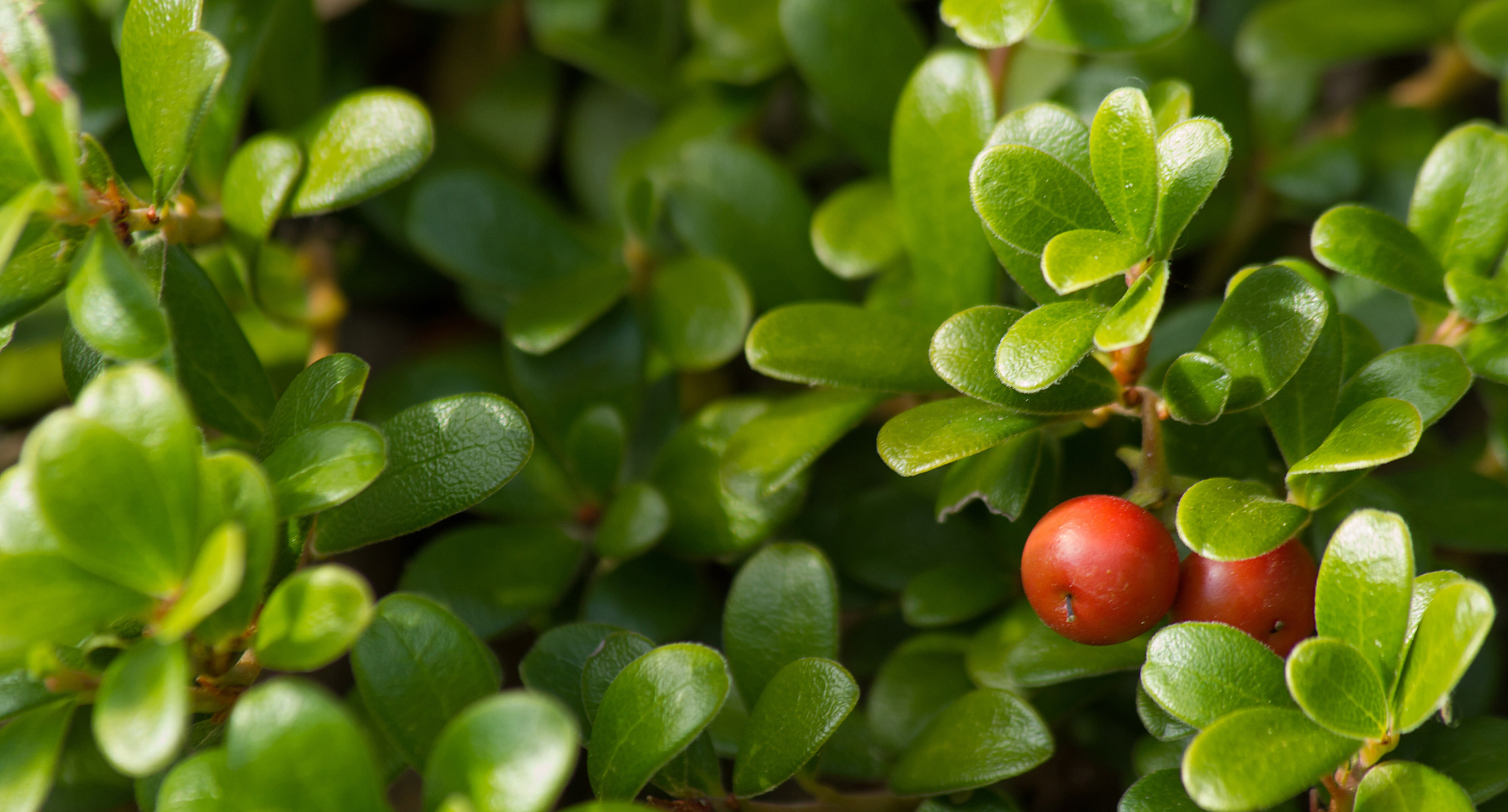
Uva Ursi
Scientific Name: Arctostaphylos uva-ursi
Herbal Profile of Uva-Ursi (Arctostaphylos uva-ursi)
Common Name: Uva-Ursi, Bearberry, Kinnikinnick
Botanical Name: Arctostaphylos uva-ursi
Family: Ericaceae (Heath family)
Description:
Uva-Ursi is a small, evergreen shrub native to North America, Europe, and Asia. It has leathery, green leaves, small white or pink bell-shaped flowers, and red berries. The leaves are the part used medicinally, known for their antiseptic and diuretic properties. Traditionally, Uva-Ursi has been used to treat urinary tract infections and other kidney-related issues. It has a long history of use among Native American tribes as well as in European herbal medicine.
Key Constituents:
- Arbutin: A compound that converts to hydroquinone in the body, providing antibacterial and urinary antiseptic effects.
- Tannins: Have astringent properties that help reduce inflammation and protect mucous membranes.
- Flavonoids: Antioxidants that support overall health and offer anti-inflammatory benefits.
- Allantoin: Known for its soothing and healing properties, particularly for urinary tract and skin health.
- Phenolic acids (Gallic and Ellagic acid): Provide antioxidant and antimicrobial effects.
Medicinal Uses:
- Urinary Tract Infections (UTIs):
- Diuretic:
- Anti-inflammatory and Astringent:
- Kidney and Bladder Health:
- Wound Healing and Skin Health:
Forms of Use:
- Tea or Infusion: Uva-Ursi tea is commonly used to treat urinary infections and promote urinary health. The dried leaves are steeped in hot water, though the tea can be quite bitter due to the tannins.
- Tincture: Alcohol-based tinctures offer a concentrated form of Uva-Ursi for use in treating UTIs and bladder infections. They are often combined with other urinary herbs to enhance their effects.
- Capsules or Tablets: Uva-Ursi supplements are available in capsule or tablet form for standardized dosing. These are often used to support urinary health and prevent infections.
- Poultice or Compress: The leaves can be made into a poultice or compress for topical application to wounds, burns, or skin infections.
Precautions:
- Pregnancy and Breastfeeding: Uva-Ursi is not recommended for use during pregnancy or breastfeeding due to its potential effects on the uterus and kidneys. It should only be used under medical supervision in these cases.
- Long-term Use: Uva-Ursi contains arbutin, which converts to hydroquinone, a compound that can be toxic to the liver in large amounts or with prolonged use. It is best used for short-term treatment of acute infections and should not be used continuously for more than one to two weeks.
- Acidic Urine: Uva-Ursi is most effective in alkaline urine. Consuming alkaline-forming foods and avoiding acidic foods and drinks (like citrus, vinegar, and soda) may improve its effectiveness.
- Liver Health: Due to the hydroquinone content, individuals with liver conditions should avoid using Uva-Ursi. Long-term or high doses can be harmful to the liver and overall health.
Growing and Harvesting:
- Climate: Uva-Ursi thrives in cold to temperate climates and is commonly found in rocky or sandy soils, often in mountainous or forested areas. It prefers full sun but can tolerate partial shade.
- Planting: The plant can be propagated from seeds or cuttings. It is a slow-growing ground cover that requires well-drained soil and tolerates drought conditions once established.
- Harvesting: The leaves are harvested in late summer or early fall when their medicinal compounds are most concentrated. They are then dried and used for teas, tinctures, or powders.
Traditional and Historical Uses:
- Native American Medicine: Uva-Ursi has a long history of use among Native American tribes, who used it to treat urinary infections, kidney ailments, and as a diuretic. It was also used in ceremonial smoking blends, known as "Kinnikinnick."
- European Herbal Medicine: Uva-Ursi was widely used in European herbalism for urinary health. It became a popular remedy in the 19th century for treating UTIs and bladder infections, particularly before the advent of antibiotics.
Uva-Ursi is a powerful herbal remedy for urinary tract health, known for its antibacterial and diuretic effects. While effective for short-term use in treating UTIs and bladder infections, it must be used with caution due to the potential toxicity of its active compounds. When used appropriately, Uva-Ursi can offer significant support for urinary and kidney health.
